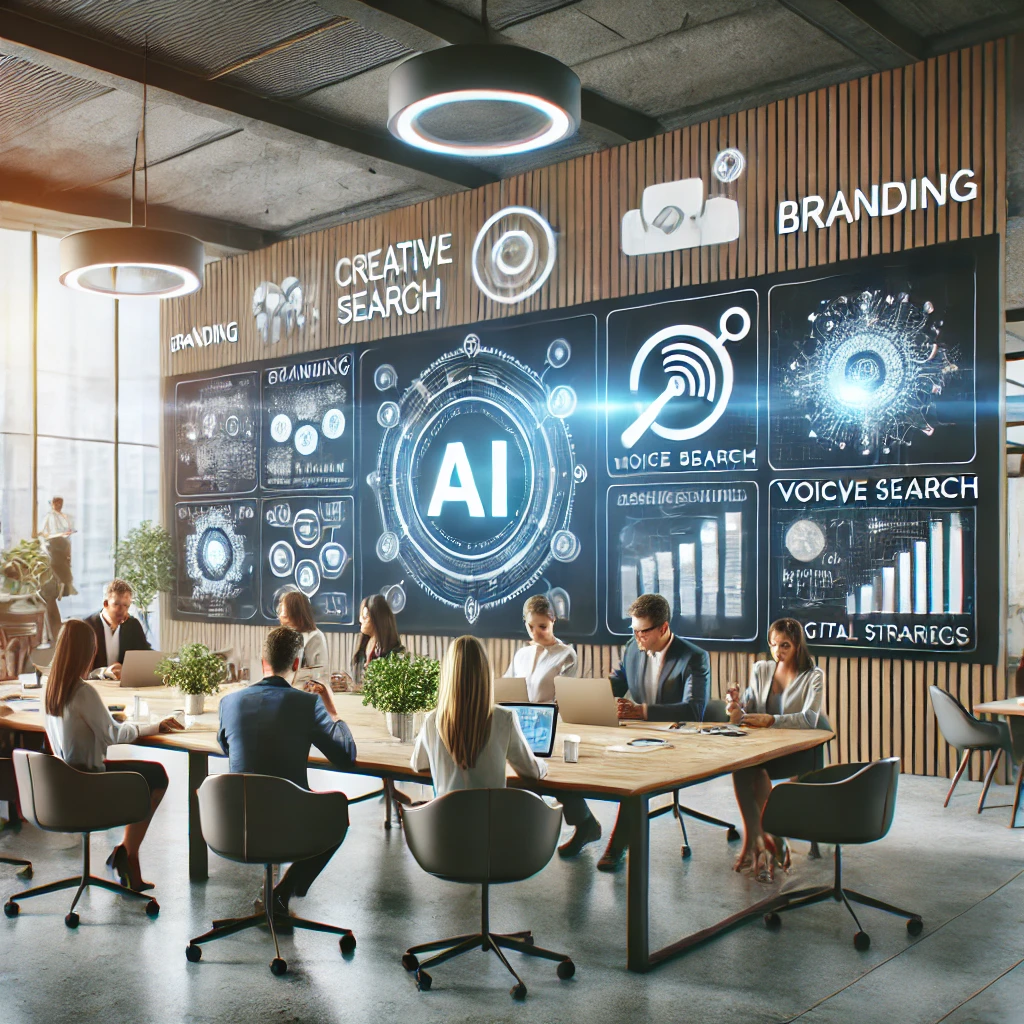In the rapidly evolving digital landscape, marketing agencies play a crucial role in helping businesses stay competitive. As we look towards the future, the integration of advanced technology like AI, voice search, and data-driven insights are reshaping the industry. In this blog, we explore how marketing agencies, creative marketing teams, and advertising agencies are adapting to these changes, and what this means for the future of digital marketing.
Table of Contents
Evolution of the Marketing Agency in the Digital Age
Marketing agencies have undergone a significant transformation. What started as traditional print and broadcast-focused agencies has evolved into multifaceted digital powerhouses. Agencies today are leveraging cutting-edge tools to stay ahead in a digital-first world. From social media marketing to search engine optimization (SEO), the role of a marketing agency is more dynamic than ever.
Example of Growth:
For instance, consider how agencies have shifted focus towards branding services and creative marketing campaigns, aiming to create stronger connections with consumers by blending creativity with data insights.
The Role of Branding Services in a Modern Marketing Agency
Branding has become an integral part of any successful marketing strategy. In today’s crowded marketplace, it’s the strong brands that stand out, and marketing agencies are at the forefront of building those brands.
Defining Branding Services
Branding services involve creating a unique identity for businesses. This includes everything from logo design, messaging, tone of voice, and color schemes. Agencies help craft a brand story that resonates with audiences, giving businesses a competitive edge.
Importance of Branding in a Competitive Market
A strong brand is key to differentiation. With the rise of digital platforms, competition is fierce, and businesses rely on branding services more than ever to establish their presence and communicate their values effectively. Agencies focusing on branding services ensure their clients remain relevant and memorable.
The Growing Impact of Creative Marketing
Creative marketing involves thinking outside the box, using innovative ideas to attract and engage audiences. Marketing agencies specialize in crafting creative campaigns that are not only memorable but also align with consumer behavior trends.
What is Creative Marketing?
Creative marketing utilizes storytelling, emotions, and personalized content to capture the audience’s attention. It goes beyond traditional methods, seeking new ways to create a lasting impact through creativity and innovation.
The Future of Creative Marketing in Digital Marketing
As digital marketing continues to evolve, creative marketing will incorporate more immersive experiences. We are already seeing agencies experimenting with interactive content, augmented reality (AR), and video storytelling.
Advertising Agencies and Their Transition to Digital
The shift from traditional advertising to digital methods has completely changed the advertising landscape. Advertising agencies now focus on digital-first strategies to reach the modern, connected consumer.
From Traditional to Digital Advertising
In the past, print ads, TV commercials, and billboards dominated the marketing world. Today, however, advertising agencies are using programmatic ads, social media campaigns, and search engine ads to reach target audiences more effectively.
Key Digital Advertising Trends for 2024
Moving into 2024, trends such as programmatic advertising, influencer partnerships, and AI-driven advertisements are expected to dominate. Agencies are also focusing on personalizing ad content based on real-time data.
The Integration of AI and Machine Learning in Marketing Agencies
Artificial Intelligence (AI) and machine learning have transformed how agencies operate. AI tools can analyze data, predict trends, and automate processes, allowing agencies to create highly targeted and efficient campaigns.
How AI is Reshaping Marketing Agencies
AI has reshaped marketing by enabling agencies to automate repetitive tasks, optimize ad placements, and deliver personalized content to audiences. Predictive analytics, powered by machine learning, gives agencies the tools to anticipate market trends and consumer needs.
Voice Search Optimization: A New Challenge
Voice search is changing how consumers interact with content. As more people use voice assistants like Alexa and Siri, agencies must optimize content for voice search. This means creating more conversational content and ensuring SEO strategies are voice-friendly.
Data-Driven Strategies for Marketing Agencies
Data analytics are at the core of any successful campaign. With access to vast amounts of customer data, agencies now create highly targeted campaigns that yield better results.
The Role of Data Analytics in Shaping Campaigns
Data is crucial in understanding customer preferences, behavior, and trends. Marketing agencies use this data to craft personalized strategies that deliver the right message to the right audience at the right time.
Future of Data Privacy and Compliance
As more data is collected, privacy concerns grow. Agencies must comply with data protection laws like the General Data Protection Regulation (GDPR), ensuring they remain transparent about how they handle user data.
For more information on GDPR compliance, visit GDPR Compliance Guide.
Conclusion: Adapting to a Future-Driven by Digital Trends
Marketing agencies will continue to evolve as new technologies emerge. The future of marketing will be heavily influenced by AI, voice search, data analytics, and creative strategies. Agencies that embrace these trends will remain at the forefront of digital marketing, driving success for their clients.
FAQs:
What is the role of a marketing agency in digital marketing?
A marketing agency helps businesses navigate the digital landscape by providing services such as branding, creative marketing, and advertising strategies tailored for online platforms.
How are advertising agencies adapting to digital marketing trends?
Advertising agencies are shifting towards digital-first strategies, using tools like programmatic ads, social media, and AI to better target and engage audiences.



